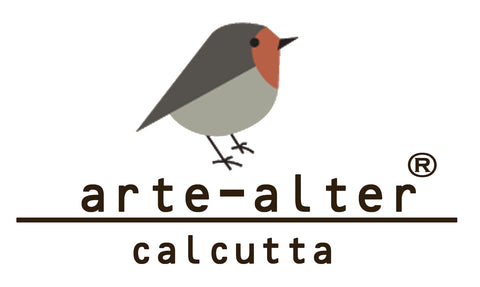
Sustainability

Sustainability has become a buzz word these days not only in fashion but in all walks of life, so to speak. This one word that encapsulates chronological developments of human race: conservation, preservation & revolution to name a few!! While many portray the practice of sustenance as a difficult practice, we here beg to disagree! A little rummage through that cupboard of nostalgia reminds us of a time, where these principles governed day to day life: right from kitchen to drawing room!! Remember, those, right? Well, everything ( or most of it) that you ate was home-grown, homemade or freshly caught. The humble means of livelihood, respect for human’s symbiotic relationship with nature resulted in a respect & through understanding towards preserving ecological balance. Most of it that covered your body, was crafted with love, was cherished , was respected. The pertinent question remains, when did that picture change? How did human race reach that point where sustenance needs to be re-taught?? The flourishing business of old age homes, bear testimony to our refusal to accept our roots. Our heritage!! Slowing down, in some cases, just like acceptance of the undeniable devastation that’s fast approaching is power, is wining over the demons that are pulling us down. Remember, no sustenance directly interprets, no future. Scary, isn’t it?

The Fashion industry is going through a restructuring in ideology, mostly in the West. Slow fashion, the term is nothing but what is mentioned above. It is important to understand, the basic constituent of environment, of nature. Well, look into the mirror. It’s you, it’s me and us!! The impact of the slowness in question, is the lubricant to keep the wheel of progress in motion: aims to affect many points of the production chain, in a positive way. For workers in the textile industry in developing countries, slow fashion means sustaining craftsmen with fair wages, and a promise of better life. From an environmental point of view, it means that there is less clothing and industrial waste that are removed from use following transient trends in slow fashion.
Recycling, Reselling, Exchanging of clothing and accessories are permeating through not only the regular level of consumerism but also is en-vogue in the realm of upscale and luxury consumers. That’s one of the futures of Sustainable Fashion. One can say, a form of redressal, adopted by the insiders of Fashion, hailed as the second largest pollutant of the environment, not only through the methods of creation but also wastage.

Humans are often known to draw comfort from threads of nostalgia woven into their complicated set of grey cells. The comfort of that handmade dohar during autumn evenings, the smoothness of muslins worn by mothers brushing against our skin , not to forget the evenings full of fables narrated by grandparents can be revived, easily, only if you join hands with the right kind of forces, aligned with the right kind of thoughts. The hands that have shaped our idea of graceful beauty, no matter whichever part of the world we speak of, are waiting to help us out of the mirth, like the priest who accepts all our silent confessions, only to pave way to Nirvana. It’s time to get the weavers, the custodian of any existing culture back to the mainstream.

Sustainability, also seeks empowerment through dependency. A country that boasts of unity woven through diversity is rich enough to create a new saga, by respecting the symbiotic relationship that have developed over centuries. Like that of craftsmen and designers!! Designers have worked with crafts, and so have government agencies. While other countries continue to recognize Indian art, we remain clueless about the same. Artisans themselves are limited to traditional designs, and do not have formal training in design or skill-development and therefore rely on external support reducing themselves to handicraft labourers. Our Project enables artisans to develop a sustainable livelihood through learning design, enhancing their skills, and help them sustain livelihood.
Find similar articles
awarenessecofriendlyethicalgood for earthgood for peoplegreen earthhand weavehand weavershand woven fabricshandcraftedhandmadeindiaindian artisansindian textile historyindian textilesknowledgelifestylenatural fibersnatureour blogrecyclereducereusesave the artisanssave the planetsustainabilitysustainablesustainable lifestylesustainable livingtextiles
